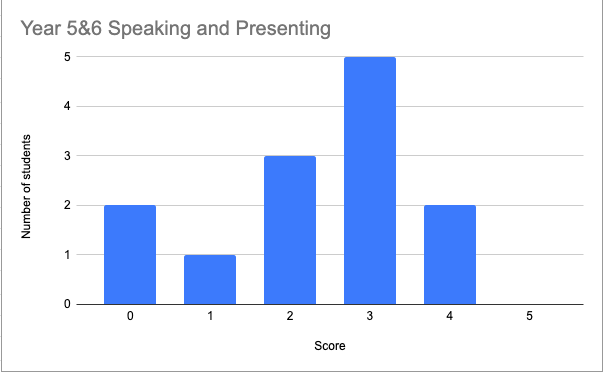Share three pieces of academic or professional reading and explain how they and other sources helped you form hypotheses about aspects of teaching that might contribute to current patterns of learning.
Speech, Language and communication needs: A resource for educators (Ministry of Education Resource)
Page 21-25, page 29
This resource works through a number of inquiry questions teachers could work on to support speech, language and communication needs. The children who are my focus are strong academically however need support in developing their oral language and communication skills.
Strategies to support participation and contributing (p21)
- Encourage children to talk to a visual aid or use cue cards
- As a teacher, use prompting to support the child to contribute their ideas
- As a teacher, use questioning
- Conventions of conversation - be explicit about this and how they differ between cultures/contexts
Strategies to support listening and communication (p22)
- Model what good listening looks like
- Add to each other's ideas
Strategies to support development of language and vocabulary (p23-24)
- Explicit vocabulary learning with variety of vocabulary which can be used to mean the same thing
- Page 24 - Steps for learning new words
Using group work:
- Sharing ideas, negotiating, collaborating
- Possible roles: speaker, listener, note taker
- Beginning and ending a conversation; keeping a conversation going; ask/answer questions
- Things for the children to discuss about conversation: feelings, facial expressions, use of voice, formality, genre.
- What oral language strategies to I want to teach?
- Practice, practice, practice using oral language!
Social skills:
- Environment needs to allow children to see each other
- Turn taking
- Look at who is talking
- Body language cues
- Voice tone
- Non-verbal cues - recognition and interpretation
- Social language skills: negotiating, expressing disagreement, make collaborative decisions, explain, Help & encourage, graciousness
- Framework for sorting out disagreements
Primary Milestone Poster: I liked how this poster shares progressions of expectations as a child moves through the primary school years. It also shares examples of what this might look like.
This poster breaks oral language down into 5 sections:
- Attention, listening and understanding
- Vocabulary
- Speech sounds, grammar and sentence building
- Verbal storytelling and narrative
- Conversations and Social Interaction
Communicating the curriculum guidance statements - by year level & by programme
These are another way of looking at progressions across year levels for different aspects of oral language.
This article discusses the importance of teaching children to independently ask WHY. The first example this article gives is to encourage children to ask WHY questions about events that are happening. The ideas they give is simple. They suggest having a car with WHY? on one side and BECAUSE... on the other.
The second example this article gives is to encourage children to ask WHY questions about events that have already happened. The final example this article gives is to encourage children to ask WHY questions about hypothetical events. It is in these examples where children will start being encouraged to think beyond their own world.
ERO: Extending their language - expanding their world
This ERO article states that we should "offer rich, broad learning opportunities to support children’s oral language learning and enable them to develop oral language capabilities foundational to their learning across the curriculum." (page 5). Teaching the extension children is a perfect opportunity to do this for these children as it is a space where I can plan for children to be working on group projects across the curriculum.
One of the main ways suggested to develop oral language is through shared conversations. Children need to practice:
- hearing rich/abstract vocabulary
- listening to a rich/abstract vocabulary
- using a rich/abstract vocabulary
- hearing complex sentences
- constructing complex sentences
- expressing ideas/feelings
- asking questions
- answering questions
(page 8)
From these readings, I have thought about deliberate acts of teaching that I can be doing to support the development of this group of children's oral language.



